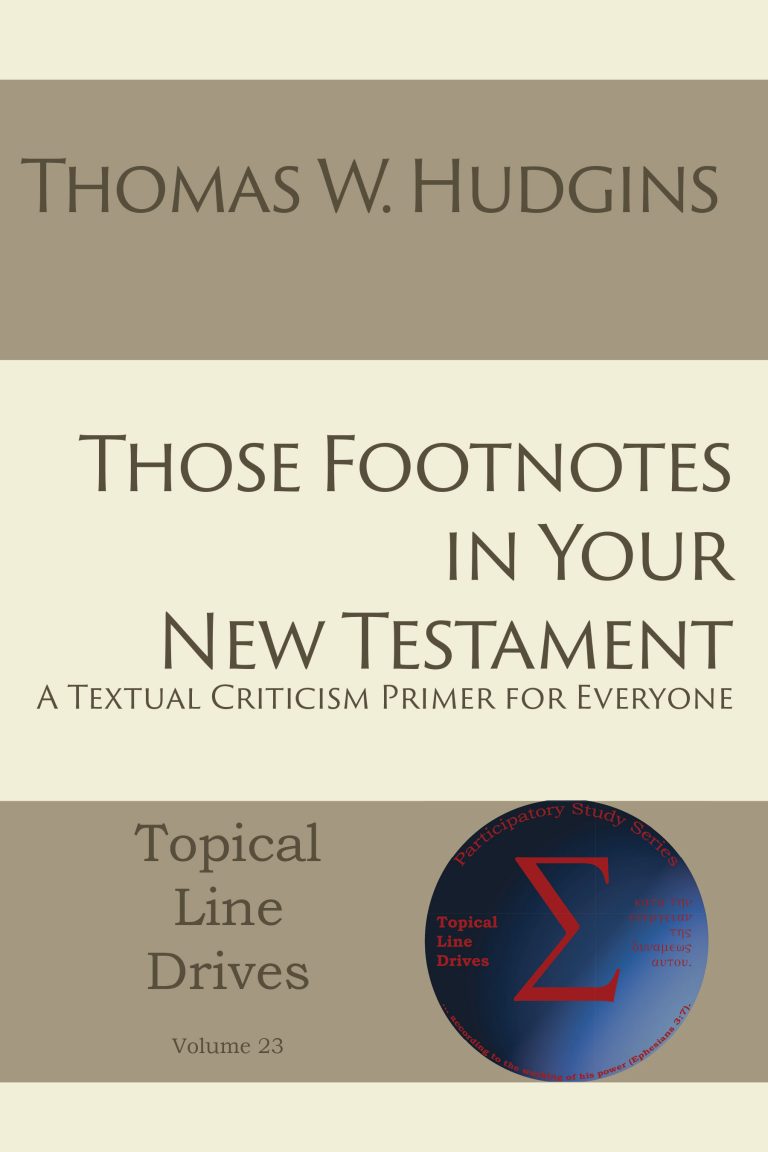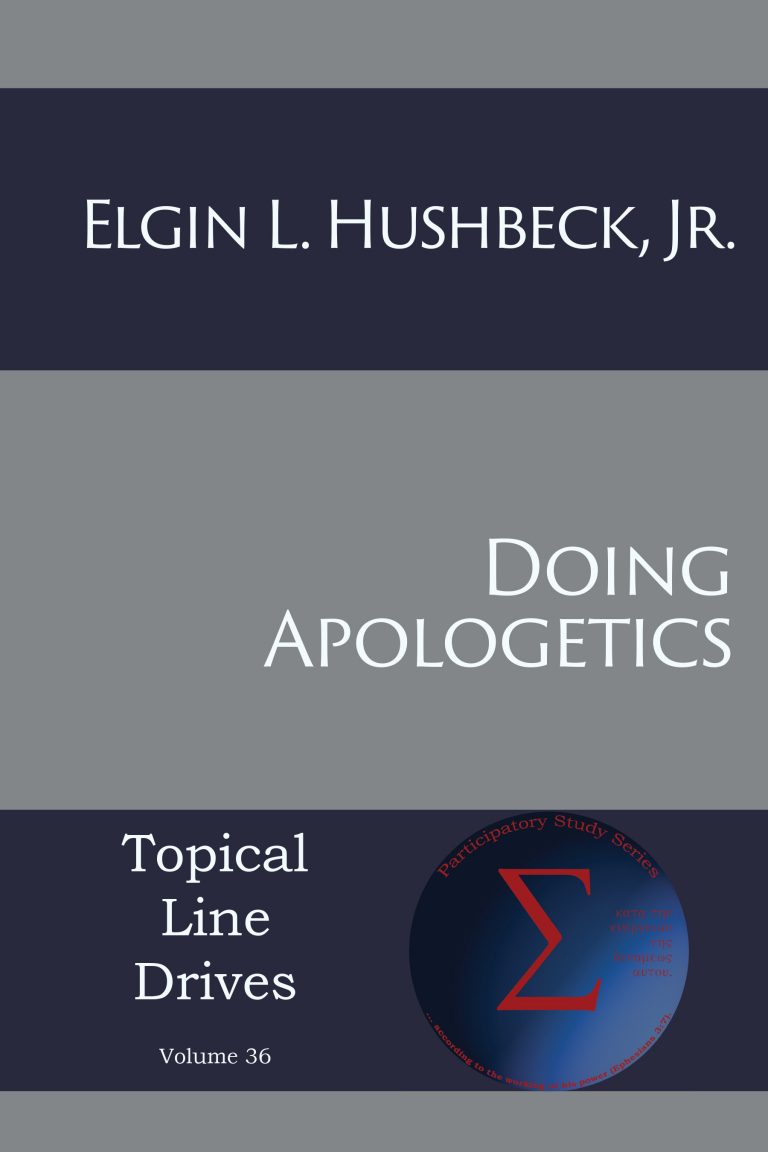Reflection on Hypotheses
9:16 AM Say, got a minute for some reflection? Today I want to think out loud with you about “hypotheses.” As a proponent of the Pauline authorship of Hebrews, all I can do is offer a hypothesis that I believe is consistent with the facts. This does not, of course, prove my hypothesis. That is a different matter altogether. Just because something is possible or even plausible does not make it probable. How, then, do I deal with this issue? You’ll have to wait for the published book to see. All I can say here is that an author who defends a hypothesis must be prepared to be judged by the evidence. The estimation of probability is left completely to the reader. The one thing readers must not do, however, is prejudge the matter. Snap judgments are never acceptable. It is a correct critical judgment we are after.
This is true even when a scientific test is applied, say, to the Synoptic Problem. In this case, we know two things: 1) There is abundant documentary evidence from the earliest centuries that Matthew is our first canonical Gospel; and 2) a critical examination of it discloses a high probability of truth. It is therefore not sufficient merely to dismiss this evidence as naive. To put it differently, in trying to discredit this “second-hand” knowledge, the skeptic assumes that he or she knows better than, say, an Origen or a Eusebius. Such a conclusion causes the devil’s advocate to point out the utter subjectivity of that position. (See the discussion in my Why Four Gospels? The Historical Origins of the Gospels.) The trouble here is an unexpressed antihistorical bias that vitiates an objective consideration of the data. Who among us has never violated the elementary canon of historiography by neglecting contrary evidence?
In short, I submit that my work on Hebrews is a closely-argued hypothesis. But it remains a hypothesis. At no time should the reader take a vacation from healthy skepticism. The one thing I hope you will not do is prejudge the matter.
(From Dave Black Online, August 17, 2013. Used by permission.)




